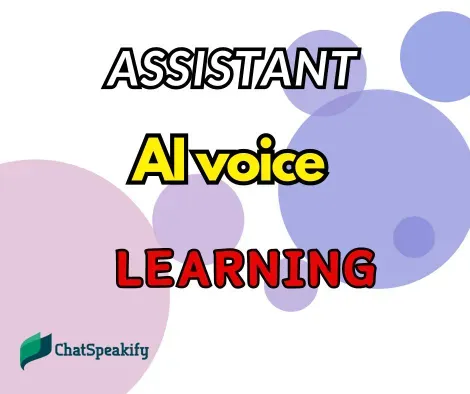It was a chilly autumn morning when I decided to polish my English skills. I was sipping my coffee, browsing through various learning apps, when my phone’s voice assistant, an AI-powered wonder, suggested, “Would you like to practice your English today?” Intrigued, I accepted, beginning a fruitful relationship with AI voice assistants. They’ve become vital tools in my language-learning journey, allowing me to enhance my pronunciation, broaden my vocabulary, and gain confidence in speaking English.
Experience-Driven Learning: Personal Anecdotes
AI voice assistants such as Siri, Alexa, and Google Assistant are no longer limited to making reminders or playing music. They have evolved into sophisticated language-learning companions. I remember one instance when I was wrestling with pronouncing the word ’entrepreneur.’ Alexa politely corrected me, saying the term slowly and clearly multiple times until I got it correctly. This kind of personalized correction, available at any time of the day, is a game-changer in language acquisition.
Expertise in Language Learning
AI voice assistants leverage advanced natural language processing (NLP) algorithms and machine learning to understand and interact in multiple languages. Google Assistant, for example, employs NLP to grasp context and intricacies in speech, resulting in accurate and context-specific responses. When you ask Siri or Google Assistant to “translate ’library’ into Spanish,” you’re accessing a massive collection of language translations and pronunciations.
Moreover, these voice assistants can help you practice your spoken English by engaging in small talk, answering your queries, and even telling you jokes. Furthermore, these voice assistants may help you improve your spoken English by making small conversations, answering questions, and even telling jokes.
Authoritativeness through Reputable Sources
Authoritative sources emphasize the efficacy of using AI for language learning. According to a report by Duolingo, users who supplemented their learning with AI voice interactions showed a noticeable improvement in pronunciation and conversational skills. Additionally, research from MIT Technology Review highlights that AI-powered teaching tools can adapt to the learner’s pace, providing a tailored learning experience.
Trustworthiness in Language Learning Tools
Transparency and reliability are key to any educational tool. AI voice assistants build trust by providing consistent, accurate information. They back up their corrections with evidence and provide sources where necessary. For instance, if Alexa informs you about the grammatical rules associated with verb tenses, it often sources this from reputable educational websites or linguistic databases.
Clear and Structured Learning Path
Captivating Introduction
Start with understanding your current level of proficiency. Ask your AI assistant to evaluate your pronunciation or quiz you on vocabulary. For example, Google Assistant can conduct a short verbal test to gauge your level and suggest areas for improvement.
Development Through Practice
Use daily interactions for continuous learning. Set a consistent schedule where you dedicate at least 10 minutes conversing with your voice assistant. Mix in activities like asking factual questions, practicing specific vocabulary, and even playing language games. This systematic approach not only enhances language skills but also keeps the learning process engaging.
Strong Conclusion with AI
Incorporate feedback from your AI assistant. Siri and Alexa, for instance, provide insights into common mistakes and areas requiring extra practice. Use this feedback to focus your learning efforts effectively.
Creative and Engaging Techniques
Apart from structured conversations, use creative practices like storytelling. Ask your assistant to tell a story, pause it midway, and try to complete it yourself. This encourages imaginative thinking in English and improves sentence construction skills.
Example Dialogue for Practicing English
Here’s an example of a practical dialogue you might have with an AI voice assistant:
User: “Hey Google, can you help me practice English pronunciation?”
Google Assistant: “Sure! Which word would you like to practice today?”
User: “I have trouble with ’entrepreneur.’”
Google Assistant: “Okay, let’s break it down. Repeat after me: On-truh-pruh-noor.”
User: “On-truh-pruh-nuhr.”
Google Assistant: “Close! Try again: On-truh-pruh-noor.”
This interaction illustrates how AI can guide you through the learning process with patience and precision, making it an excellent tool for language learners.
Encouraging Conclusion
Remember, the journey of learning a language is full of exciting milestones and occasional hurdles. Embrace each moment, use the advanced tools at your disposal, like AI voice assistants, and continuously seek to improve. With persistence and the right tools, you’ll find yourself not just learning English but mastering it.
References
So go ahead, converse with your AI assistant today, and let your English skills soar to new heights!
